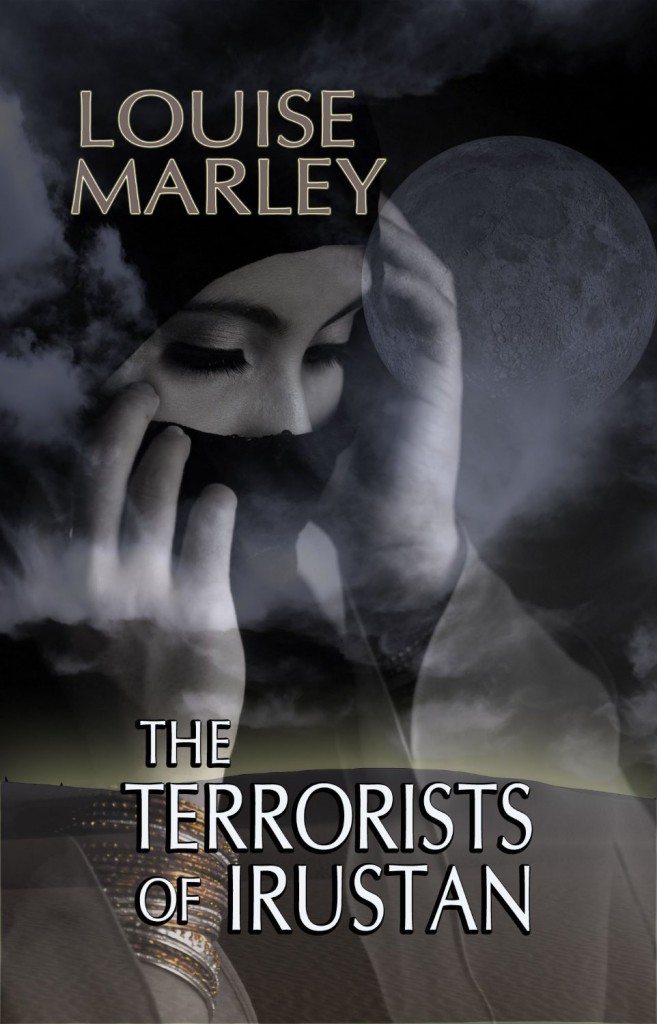The Terrorists of Irustan
On the planet of Irustan, one woman is fighting back . . .
Zahra IbSada is a talented medicant, and sees much of the joy in the lives of the women she heals–and much of the pain. She sees a wife brutally beaten, a prostitute suffering at the hands of her employers. And her best friend Kalen, a mother who is struggling to save her daughter from a cruel betrothal. Kalen begs Zahra for help, and although it goes against her medicant vows, Zahra reluctantly agrees. But this silent act of terrorism will have far-reaching consequences—for herself, and for all the women of her planet.
Praise
“One of feminist sf’s new champions, Marley creates a convincing Arab-like milieu on the desert planet Irustan, where for 300 years male colonists have extracted a dangerous living from the rhodium mines, deliberately maintaining their primitive dominant-male culture. The triple-veiled women of Irustan, virtual slaves to their men, embody far greater—though unacknowledged—courage, especially medicants like Zahra IbSada who use cast-off Earth medicine to treat sick and dying colonists the men fear to touch. Faced with one horrifying case of wife and child abuse after another, Zahra and her fellow wives of Irustani official wreak a powerful vengeance on their tormentors. Marley deftly skirts the potential peril of blatant propagandizing by rounding most of her male characters, especially Zahra’s husband, Qadir, into plausible, if narrow-minded human beings. She also sketches a bittersweet same-sex subplot between Zahra and Jin-Li Chung, a worker forced to masquerade as a man to escape destitution on teeming Earth. Rich with alien atmospherics and seething with issues of gender and prejudice, Zahra’s dark journey into revolution offers some sensitive signposts to understanding.”
—Publishers Weekly
“Louise Marley deftly creates a detailed world full of complex characters so believable that they make you feel all their emotions with them: rage, powerlessness, rebellion, terror, determination, and hope. A dark, richly imagined tale . . . a thoughtful meditation upon the dangers of fanaticism and the strength of the human spirit.”
—Sharon Shinn, author of Archangel

